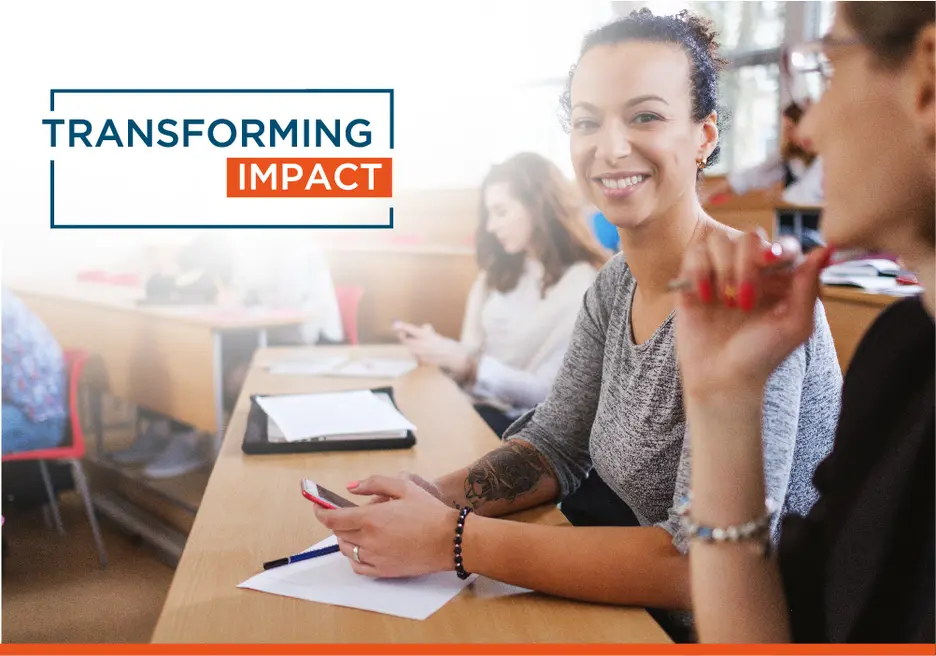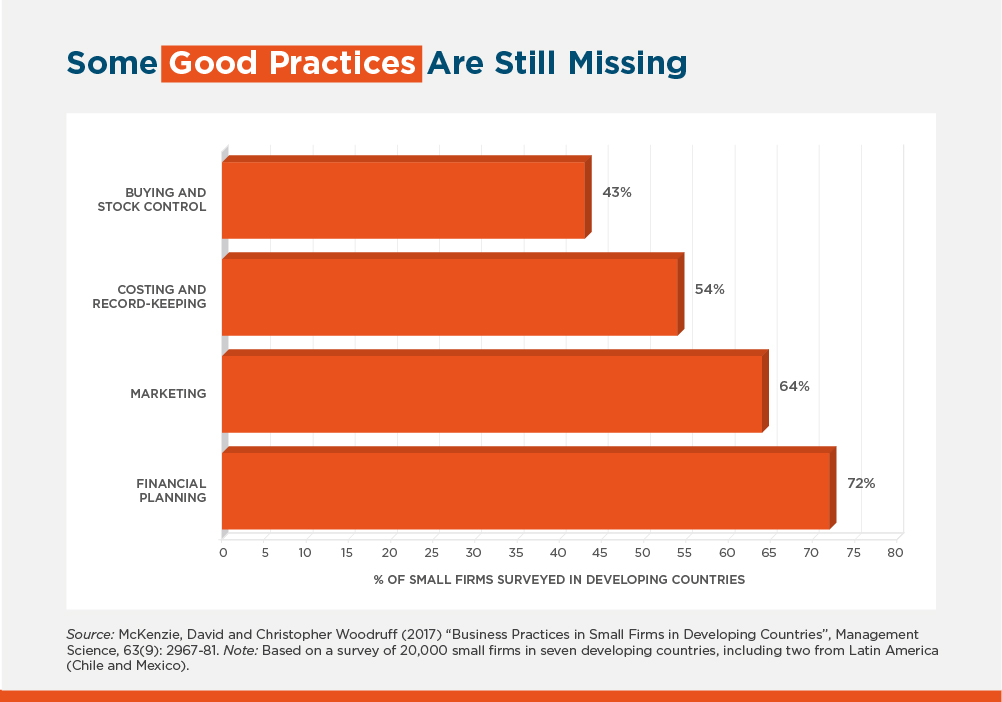An Innovative Digital Training Strategy for Women Microentrepreneurs in Guatemala

Soon after the pandemic was declared, it was clear that it would bring winners and losers among the different sectors of the region's economies. The food industry, generally speaking, came out in good shape, but some distribution channels benefited more than others.
In the case of CMI Alimentos' micro franchises that sell chicken products in Guatemala, called La Casa de Pollo Rey, sales grew 8% year-on-year in the second quarter of 2020. This growth is even more relevant when one takes into account the increase in unemployment and the drop in income generated by the COVID-19 crisis.
A combination of factors contributed to this result, including being small neighborhood stores that benefited from the mandated mobility restrictions and being recognized for their strict hygiene standards, reinforced by the COVID-19 prevention measures that were quickly adopted with CMI’s help.
Seventy percent of these 850 Guatemalan micro franchises are managed by women. In a survey conducted the last week of November with 600 of these micro franchises, 43% of them stated that the COVID-19 crisis created opportunities for improvement in their businesses, especially in terms of an overall increase in sales (70%) and of home delivery sales in particular (16%). But, as shown by the drop in sales occurring as of July, these microentrepreneurs still face limitations when it comes to taking advantage of these opportunities.
IDB Invest has been working with CMI Alimentos for over two years to support these microentrepreneurs or so-called “Allies”, who constitute an important distribution channel for the company’s Livestock Industry sector, which is even more relevant than the supermarket channel.
As part of this collaborative work, this month we have launched a fully online Ally training project. It specifically aims to improve women entrepreneurs’ business management skills, soft skills and empowerment. The training strategy and materials will be developed with the support of the FUNDES consultancy firm, which will explore whether gender-based knowledge gaps exist and then adjust the materials accordingly.
An in-depth diagnosis
In order to identify these microentrepreneurs’ needs and challenges for growth, in 2018, IDB Invest and CMI Alimentos surveyed 200 Allies (75% women) and 100 female clients. The diagnostic work was completed with a focus group of 40 women led by IDB Invest in 2019. This work allowed us to find out just who these microentrepreneurs really are; on average, they are 37 years old, most have owned a business previously (63%), they have a bank account (70%), and have at least one employee (67%).
Fifty-seven percent of those surveyed stated that they had never received training on running a business. They were interested in topics such as marketing, accounting, customer service, and business plan development, all of which are among the most difficult to adopt for small businesses in developing countries.

Over 90% of Allies have a smartphone and 60% said they preferred using WhatsApp to receive information to help their business. These elements, in addition to the restrictions imposed by the COVID-19 crisis, convinced us that this was an opportunity to develop a fully online training model, which will include a digital platform with general modules as well as personalized sessions with specialists in various subjects.
The importance of a rigorous assessment
A recent report highlights the importance of cost-effectively scaling interventions for micro and small entrepreneur training, as well as the massive potential of digital technologies and online training, especially in the current scenario marked by COVID-19.
It also notes, however, that there is little evidence regarding their effectiveness. IDB Invest will carry out an impact evaluation—which will include a group of trained microentrepreneurs and a control group—that will allow for measuring the effectiveness of the training strategy for Allies using digital means.
This is very relevant for CMI Alimentos, since the results will allow it to decide whether to scale the intervention, not only in Guatemala but also in other Central American countries where it operates through similar micro-franchise models. CMI Aimentos’ Allies presents a prime example of how IDB Invest can support our clients in forming more inclusive value chains, turning the challenges brought by COVID-19 into opportunities.
LIKE WHAT YOU JUST READ?
Subscribe to our mailing list to stay informed on the latest IDB Invest news, blog posts, upcoming events, and to learn more about specific areas of interest.
Subscribe

